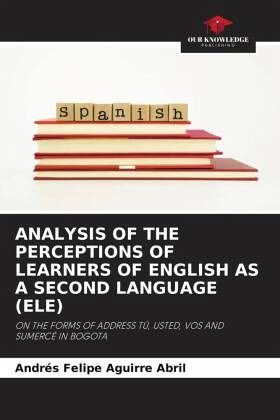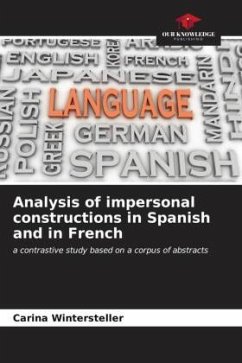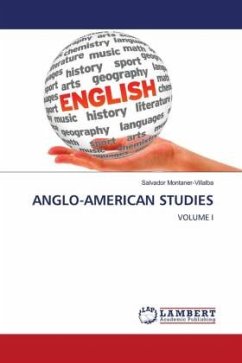
ANALYSIS OF THE PERCEPTIONS OF LEARNERS OF ENGLISH AS A SECOND LANGUAGE (ELE)
ON THE FORMS OF ADDRESS TÚ, USTED, VOS AND SUMERCÉ IN BOGOTA
Versandkostenfrei!
Versandfertig in 6-10 Tagen
29,99 €
inkl. MwSt.

PAYBACK Punkte
15 °P sammeln!
The purpose of this research is to analyze the perceptions of ELE learners in Bogotá on the social uses of the forms of address tú usted vos and sumercé and their management in the teaching practices developed in the classroom. For this purpose, a qualitative research was carried out, with a case study design and an analytical-interpretative research scope. The instrument used was the semi-structured interview; the participants in this study were 10 ELE learners in Bogotá of 9 different nationalities. The data and information collected were interpreted using the content analysis technique....
The purpose of this research is to analyze the perceptions of ELE learners in Bogotá on the social uses of the forms of address tú usted vos and sumercé and their management in the teaching practices developed in the classroom. For this purpose, a qualitative research was carried out, with a case study design and an analytical-interpretative research scope. The instrument used was the semi-structured interview; the participants in this study were 10 ELE learners in Bogotá of 9 different nationalities. The data and information collected were interpreted using the content analysis technique. As a result of the study, it became evident that the learners do not have a clear knowledge of the social uses of these forms in Spanish, in addition to, on some occasions, not knowing them. In general, the learners' perceptions tend to be aligned with stereotyped, monolithic and prototypical generalizations about their uses.












